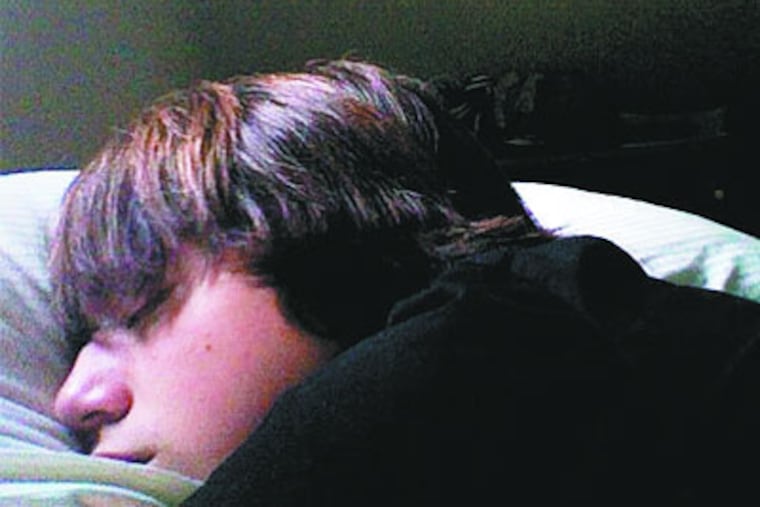Filing states student broke rules and had no expectation of privacy
Blake Robbins should have known better.

Blake Robbins should have known better.
So says the official who ran the Lower Merion School District's controversial computer security system when it snapped Robbins' picture in his home and led to his invasion-of-privacy suit against the district.
Even in his own home, the Harriton High School sophomore had "no legitimate expectation of privacy" from the camera on his school-issued laptop, information systems coordinator Carol Cafiero contended in a court filing on Tuesday.
Cafiero - who is on paid leave while the district investigates the laptop controversy - claimed Robbins lost any legal protection from the Web-camera security system when he took a school laptop home without permission.
Robbins had previously broken "at least two" school computers and did not pay the insurance fee required to get permission to take home the Apple MacBook that later snapped his pictures, Cafiero's attorney, Charles Mandracchia, wrote in the filing.
"When you're in the home, you should have a legitimate expectation of privacy," Mandracchia said in an interview. "But if you're taking something without permission, how can you cry foul when you shouldn't have it anyway?"
Mandracchia's court filing and comments came on the heels of the district's latest disclosures about the volume of photos and "screen shots" taken over two years by the high-tech security system that was designed to track lost or stolen laptops.
District officials said Monday that the built-in cameras on students' laptops had been switched on 146 times, taking 56,000 pictures in the process. District lawyer Henry E. Hockeimer said none of the photos appeared to be "salacious or inappropriate" but said that did not justify the use of the program.
It was not immediately clear if the school district agreed with any of the arguments made in Cafiero's court filing. Reached Tuesday night, Hockeimer, the former federal prosecutor who is the district's lead lawyer in the dispute, said "no comment" when asked about Cafiero's filing.
Revelations about the laptop security system's use have also prompted a federal investigation, and on Tuesday, Cafiero told an FBI agent that she had a "very limited" role in the Web-camera usage, her lawyer said.
Interviewed by the federal agent in Mandracchia's Skippack law office, Cafiero told of activating students' laptop cameras three times, by request, in the 2008-09 school year - and once last fall to track down a student teacher's lost computer, her attorney said.
"She had nothing at all to do with Blake Robbins," Mandracchia said.
He said Cafiero did not invoke her Fifth Amendment protections against self-incrimination in response to any of the FBI agent's questions, though she had done so earlier when the Robbinses' lawyer, Mark S. Haltzman, sought to question her under oath in a deposition for the family's civil suit.
A "baseless fishing expedition" was how Mandracchia described Haltzman's formal request last week to examine the contents of Cafiero's home computer. Mandracchia said the school district's computer records would show whether his client had ever downloaded any photos.
By phone, Haltzman said Cafiero's latest filing showed "no respect for the privacy of Blake Robbins" by offering details of the sophomore's past issues with computers and insurance fees. Haltzman also said the district itself "has never asserted" that Robbins had waived his right to privacy by taking home a laptop without permission.
"It is false to say that he did not have an expectation of privacy," Haltzman said. "It is also wrong for Cafiero to make that type of assertion in her pleading."
The sniping between lawyers in the controversy that Lower Merion students have dubbed "Webcam-gate" was not limited to arguments over the Robbins' right to privacy. Mandracchia also railed against Haltzman's claim, in an earlier filing, that Cafiero "may be a voyeur" who sent pictures to her home computer.
"This scandalous, malicious and abusive attack on Mrs. Cafiero's character, in essence labeling her a sexual deviant, is false, outrageous and without any basis," Mandracchia wrote.
The civil case is due back in court Wednesday for a closed-door conference before Chief Magistrate Judge Thomas J. Rueter. District officials have said they want Rueter to oversee the delicate process of giving parents and guardians a chance to view, in private, the photos taken of their children by the laptop cameras.